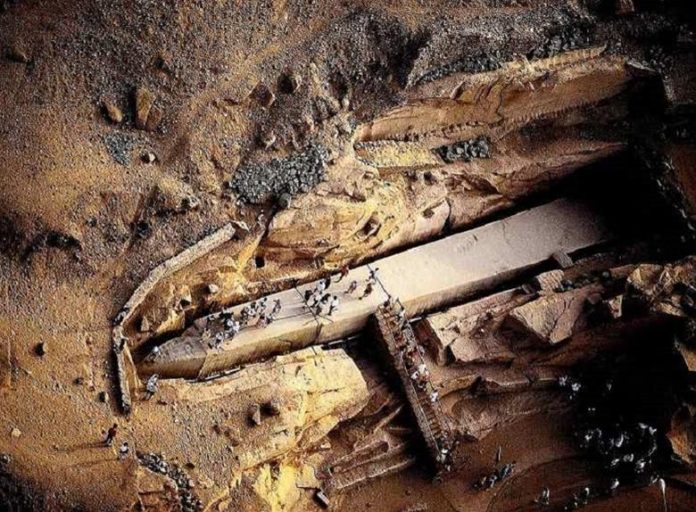Where you from? If the authors of a controversial new study are correct, everyone on the planet has the same answer: Botswana, Africa. More specifically, a northern swath of the country, along with small parts of Namibia and Zimbabwe.
The analysis suggests that 200,000 years ago this region consisted of lakes and wetlands, where a “founder population” of hunter-gatherer Homo sapiens gained a foothold.
The conclusion, reached through analyses of mitochondrial DNA, historic climate estimates, geography, and other factors, helps pinpoint the long-debated geographic origins of our ancestors, but is not without its skeptics.
“I’m definitely cautious about using modern genetic distributions to infer exactly where ancestral populations were living 200,000 years ago, particularly in a continent as large and complex as Africa,” Chris Stringer, who studies human origins at the Natural History Museum in London and was not involved in the study, tells The Guardian. “Like so many studies that concentrate on one small bit of the genome, or one region, or one stone tool industry, or one ‘critical’ fossil, it cannot capture the full complexity of our mosaic origins.”
An international team of researchers analyzed the mitochondrial genomes of more than 1,200 people from southern Africa, including Khoisan individuals who continue to live as hunter-gatherers, to trace back the oldest maternal lineage. Combining those data with predictions about the climate and geography in southern Africa around 200,000 years ago, the authors estimate that the first modern humans lived near a massive body of water called Lake Makgadikgadi.
The ancestral home was a lush wetland region that has since become salt flats. According to the study, the earliest modern people resided here for about 70,000 years before certain groups branched out to other locations.
“By comparing the climatic data with timelines of the genetic divergences, we found a striking pattern,” coauthor Axel Timmermann, the director of the Center for Climate Physics at Pusan National University in South Korea, tells PBS NewsHour. “More rainfall around 130,000 years ago, northeast of the Makgadikgadi homeland created a green corridor—a vegetated corridor—for migration for the first group.”
As NewsHour notes, mitochondrial DNA tells only a fraction of humans’ history, and scientists are not universally convinced by the paper’s conclusions. Speaking with The Guardian, the University of Pennsylvania’s Sarah Tishkoff took issue with the limited genetic sample. “How can they know that there aren’t old lineages in other regions if they’re not included in the study?” she says.
















This is what happens when scientists reject the only true God and His Son Jesus Christ, they invent this kind of history to explain away Gods creation. Do you not think that God can create a world with a history already in it? Like mature trees, carbon 14 already in the rock and artifacts. Well we all will find out real soon as this worlds system is about to come to a conclusion as spoken of in the Bible, NOT the koran